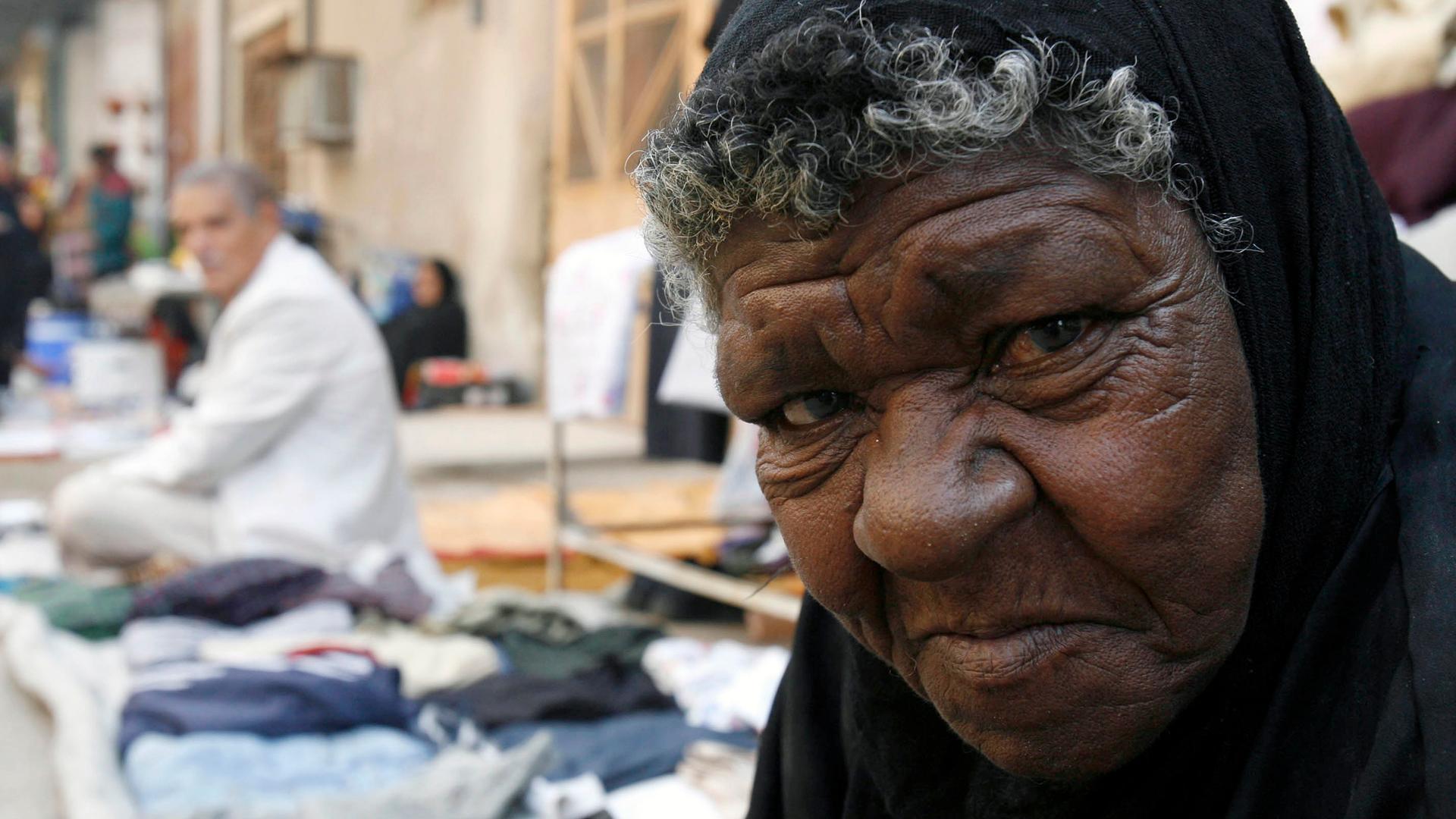Black-Iraqis have a 1,300-year-old history in the country and are the descendants of east African slaves who rebelled against their Abbasid overlords.
The killing of George Floyd during his arrest in Minneapolis in late May has led to a reckoning with the past for many, in particular, setting in motion a reexamination of the history of slavery in the US and UK.
One community in the Middle East is watching the events in the US with a keen interest, as they feel a special affinity with African-Americans and their struggle to overcome the legacy of slavery in their daily lives since emancipation – the black Iraqi community.
Floyd’s death served as a rallying call for Iraqi-Africans, whose ancestors rose up against captivity during the Abbasid Empire in a revolt known as the Zanj rebellion, from 869 to 883 CE.
The community can relate to events in the US, such as the election of Barack Obama, to outrage over Floyd’s death, as it resonates with the racism they deal with in Iraq on a daily basis, as well as their struggle for agency and recognition.
The Zanj Revolt
In the early Middle Ages, landowners in the vicinity of Basra in what is today’s southern Iraq, imported black slaves from East Africa for the backbreaking work of draining the salt marshes east of the city.
Ali ibn Muḥammad, a Persian claiming descent from Imam Ali, gained the support of a number of slave gangs after preaching the Kharijite doctrine that anyone, even a black slave, could be chosen as caliph.
The revolt began in 869, gaining early momentum after some black soldiers in the Abbasid army, as well as the disaffected local peasantry, defected to their cause.
They benefited further as Caliph Mu’tamid’s central government was bedeviled by divisions between Arab lawmakers, Persian bureaucrats, and Turkic commanders in the new capital, Samarra.
After defeating the caliph’s army that year, they constructed their own capital, al-Mukhtara, or “the Chosen,” and captured a seaport on the Gulf, as well as spreading to southwestern Iran. The Zanj created a statelet that lasted more than a decade.
By 883, the caliph’s army finally conquered the rebel capital and decapitated their leader. The historian Kent Krause, describing the legacy of the revolt, said it was : “A precursor to the slave rebellions in Latin America and the Caribbean centuries later, the Zanj rebellion demonstrated the powerful potential of a captive population that rises up in solidarity.” Indeed this event can be situated alongside slave revolts during the Haitian Revolution of 1791 or the Male Revolt of Muslim slaves in Bahia, Brazil of 1835.
The name given to this rebellion comes from the word “Zanj” meaning “black.” The etymology of the island of Zanzibar comes from this term and the Arabic “barr” meaning “land” or “coast.” Zanj referred to black slaves from East Africa in general and since then has become a pejorative word in the present for black people in Iraq and Turkey, in addition to “abid,” the literal word for “slave.”
After the fall of Saddam Hussein in 2003, Iraqi-Africans mobilized to end the use of these insults among other structural bases of discrimination.
Iraqi-Africans in Post-Saddam Iraq
With the ensuing development of an Iraqi civil society after 2003, Jalal Diab Thijeel, an Iraqi-Africans, founded the Free Iraqi Movement in 2007 to represent his community of approximately two million, primarily located in Basra province.
The movement seeks to overcome their marginalisation, advocating civil rights, government recognition of the community, and anti-discrimination laws to address the racism they endure.
When it was founded, no one from their community served as a cabinet level minister, MP in parliament, or even in a municipal council. The state’s recognition as a minority would entitle them to government-mandated quotas for elected positions.
The 2008 election of Barack Obama served as an inspiration for their community, and Thijeel hung a photo of the president in his classroom, where he taught courses on black Iraqi history, and fostered an Iraqi hip-hop scene to protest endemic discrimination.
On April 26, 2013, Thijeel was assassinated, most likely by political factions opposed to his attempt to run for office. Nonetheless, the Movement survived the death of its founder, and found a renewed rallying point again stemming from the US. While the election of Obama to America’s highest executive post in 2008 served as an inspiration for Iraqi-Africans, so did the grassroots initiatives of the Black Lives Matter movement.
Iraqi-Africans Responding to Floyd’s Death
Iraqi-Africans sought to use George Floyd’s death to shed light on their own oppression. They too sought to hold a vigil for Floyd, but were prevented from doing so due to Iraq’s precarious situation as a result of the coronavirus epidemic.
The movement still seeks to amend Iraq’s constitution to ban discrimination against black people, and have the state improve their representation in parliament and their employment opportunities. Most continue to hold menial jobs, serving as cleaners or musicians and dancers. They are denied a chance to serve and advance in the army and police, as well as local bureaucracies.
They continue to seek social awareness about their plight, asking for access to the national media to address their grievances, as well as reforming the school curricula to acknowledge their history in an unbiased fashion.
Their struggle seeks to redress the humiliation and degradation the community has endured for centuries, providing them some measure of dignity.
Besides the picture of Obama, Thijeel also hung a picture of the Reverend Dr. Martin Luther King.
Both were ultimately assassinated for advancing civil rights for their respective communities. One hopes that Thijeel will be recognised as an Iraqi Martin Luther King not just by Iraqi-Africans, but all Iraqis.
Author: Ibrahim Al Marashi
Ibrahim al-Marashi is an associate professor at the Department of History, California State University, San Marcos. He is the co-author of The Modern History of Iraq, 4th edition.
Source










Discussion about this post